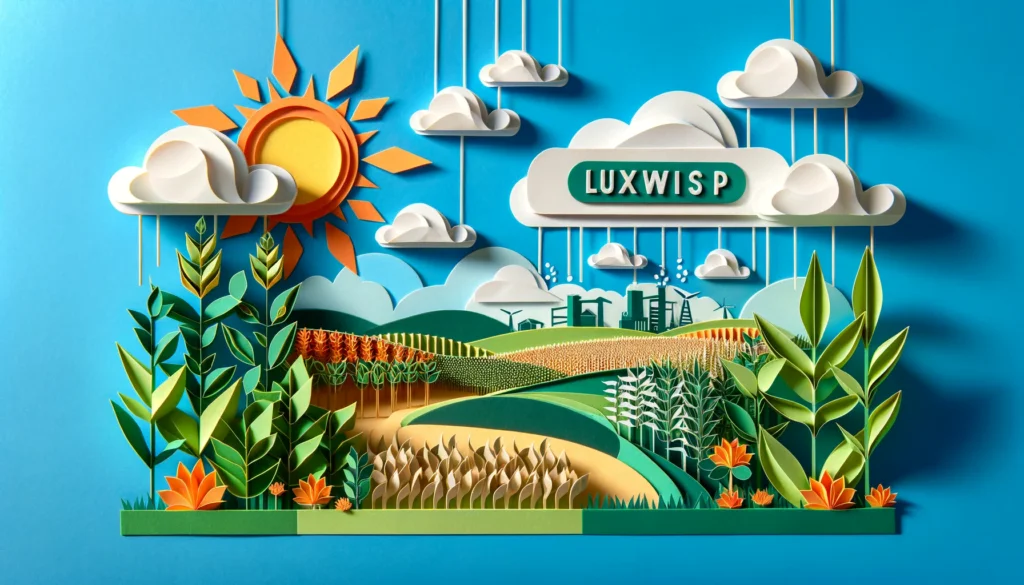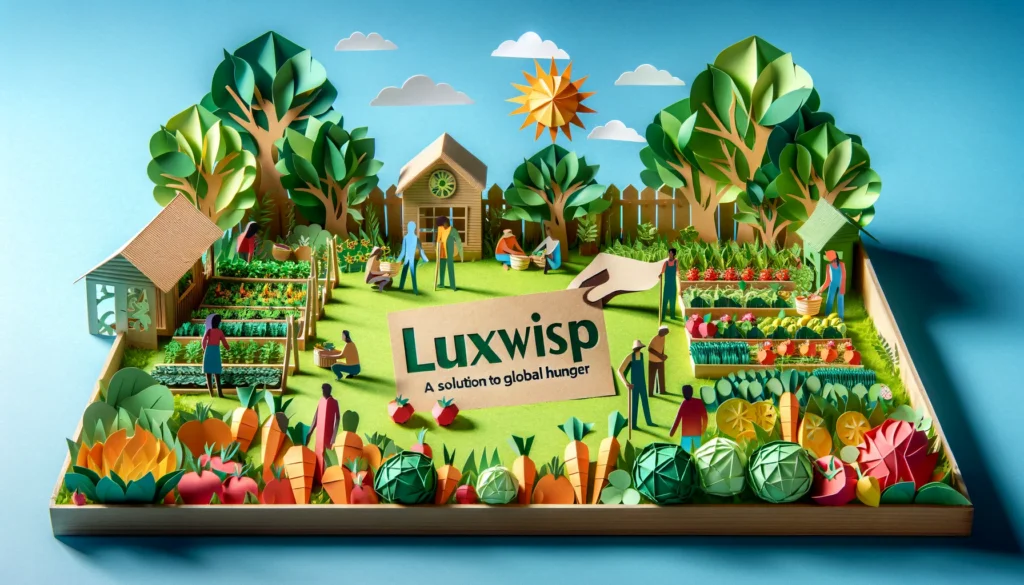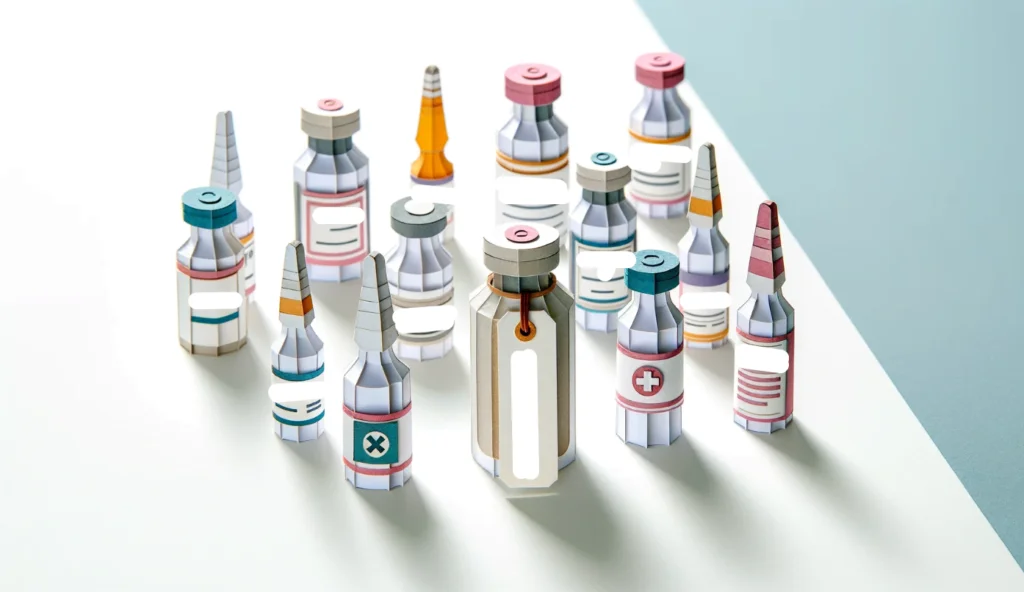The pros of biotechnology are improved healthcare through advanced drugs and treatments, higher agricultural yields from genetically modified crops, and environmental benefits like reduced pollution through bioremediation. It also offers sustainable energy alternatives, stronger materials in manufacturing, and significant advancements in medical research. Additionally, biotechnology enhances disease prevention, increases food production through improved livestock health, and enables scientific breakthroughs in understanding biological processes.
The cons of biotechnology include ethical concerns in genetic engineering and cloning, potential health risks from GMOs, and environmental disruptions from modified organisms. There are also risks of creating superbugs, job displacement due to automation, and growing inequality due to corporate control in biotech. Moreover, it raises issues of healthcare access, patent monopolies limiting technology availability, and regulatory challenges in ensuring safety. Public perception varies widely, and there’s potential for misuse, such as bioweapons development or unintended genetic consequences.
Takeaways:
- Biotechnology boosts agriculture and healthcare through enhanced crops, novel treatments, and diagnostic advancements.
- Biotech provides eco-friendly solutions for pollution reduction and resource conservation.
- GM crops offer improved resistance to diseases, pests, and extreme conditions, minimizing pesticide use.
- Biotechnology poses ethical, safety, and economic challenges, yet responsible use can drive innovation and growth.
Biotechnology Industry Fact Sheet:
- Market Dynamics:
- Growth: Expanded from $753.48 billion (2020) to an estimated $1,000.46 billion (2021).
- Projection: Expected to reach $3,879.51 billion by 2030.
- Global Influence:
- Leadership: U.S. as the global leader.
- Emerging Contributors: Europe, Asia Pacific, Latin America, Middle East, and Africa.
- Applications and Impact:
- Biomanufacturing: Microbes programmed for specialty chemicals and compounds.
- Production Diversity: Includes plastics, fuels, materials, and medicines.
- Manufacturing Forecast: Bioengineering could account for over a third of global output before 2030.
- Sectoral Innovation: Focus on health, agriculture, and energy.
- Labor Market:
- Biological Technicians: Median annual wage of $49,650 (May 2022).
- Employment Projection: 5% growth from 2022 to 2032.
- USDA Support: Advocacy for safe biotechnology use.
Biotechnology Historical Perspective
- Foundations and Early Use:
- Ancient Practices: From Egyptian bread-making to Aztec algae utilization.
- Early 20th Century: Integration in industry and agriculture.
- Technological Evolution:
- Automobile Industry: Fermentation for acetone and solvents.
- Genetic Milestones: Mid-century advances in genetics research.
- DNA Breakthrough: Recognition of DNA as the genetic code carrier.
Sources:
- Biotechnology Around the World | UW Extended Campus
- FACT SHEET: President Biden to Launch a National Biotechnology and Biomanufacturing Initiative
- Biological Technicians – U.S. Bureau of Labor Statistics
- Biotechnology | USDA
- History of Biotechnology – Lone Star College
| Pros of Biotechnology | Cons of Biotechnology |
|---|---|
| Increased Crop Yield and Quality | Potential Health Risks |
| Reduced Pesticide Use | Environmental Risks |
| Improved Nutritional Value | Ethical Concerns |
| Disease Prevention and Treatment | Unintended Consequences |
| Environmental Benefits | Unknown Long-Term Effects |
| Medical Advancements | Ecosystem Disruption |
| Improved Livestock Production | Genetic Diversity Reduction |
| Biofuel Production | Dependence on Biotech Products |
| Industrial Applications | Access and Affordability Issues |
| Advancements in Research | Biosecurity Threats |
| Bioremediation | Potential for Misuse |
| Renewable Energy Alternatives | Regulatory Challenges |
| Creation of New Materials | Public Perception and Acceptance |
| Ethical Advancements in Disease Treatment | Patent Issues |
| Genetic Cures for Risks | Socioeconomic Implications |
| Efficiency Increase in Corporate Control | Genetic Discrimination Risk |
| Automation Advancement in Job Displacement | Loss of Traditional Knowledge |
| Better Access Through Social Divide Mitigation | Increased Pesticide Resistance |
| Enhanced Food Preservation | Cultural and Social Impacts |
| Climate Change Mitigation | Overreliance on Technology |
| Waste Reduction and Management | Data Privacy Concerns |
| Enhanced Diagnostic Techniques | Job Displacement in Traditional Sectors |
| Biodiversity Conservation | Resource Overexploitation |
| Development of Orphan Drugs | Monoculture in Agriculture |
| Global Health Improvement | Bioweapons Development Risk |
Pros of Biotechnology

- Increased Crop Yield and Quality: Biotechnology enables the development of genetically modified organisms (GMOs) that are resistant to pests, diseases, and harsh environmental conditions. This advancement significantly enhances agricultural productivity, ensuring food security for the growing global population. By utilizing these technologies, farmers can produce crops that are not only more abundant but also of higher quality, contributing to better food standards globally.
- Reduced Pesticide Use: Through the engineering of GMOs that produce their own pesticides or are resistant to certain pests, biotechnology reduces the need for external chemical pesticides. This not only minimizes the environmental impact of agricultural chemicals but also lowers the cost of production for farmers. Additionally, reduced pesticide use can lead to healthier crops and a safer food supply for consumers.
- Improved Nutritional Value: Biotechnology offers the potential to enhance the nutritional content of crops. By fortifying plants with essential vitamins and minerals, it can address nutritional deficiencies in populations reliant on a limited range of food crops. This application of biotechnology is particularly crucial in developing countries, where malnutrition and micronutrient deficiencies are prevalent.
- Disease Prevention and Treatment: In healthcare, biotechnology has been instrumental in the development of vaccines, diagnostic tests, and therapeutic drugs. These advancements have enabled more effective prevention and treatment of a wide range of diseases, contributing significantly to public health and increasing life expectancy. The speed and efficiency of developing new treatments have also improved, as seen in the rapid development of COVID-19 vaccines.
- Environmental Benefits: Biotechnology contributes to environmental conservation by promoting sustainable farming practices. Techniques like genetic modification can reduce soil erosion and water pollution, preserving biodiversity. Additionally, biotechnological applications in waste management help in the efficient decomposition of organic matter, reducing landfill waste and mitigating greenhouse gas emissions.
- Medical Advancements: The field has led to significant advancements in medical research, including the development of personalized medicine, which tailors treatments to individual genetic profiles. Gene therapy offers potential cures for genetic disorders, and regenerative medicine opens new possibilities in repairing or replacing damaged tissues and organs. These innovations promise a future of more effective and customized healthcare solutions.
- Improved Livestock Production: Biotechnology enhances the health, growth, and productivity of livestock, thus contributing to increased food production. Techniques like genetic modification and improved veterinary vaccines ensure healthier animals, higher meat, milk, or egg production, and lower susceptibility to diseases, supporting the sustainability of the livestock industry.
- Biofuel Production: Biotechnology plays a pivotal role in the development of biofuels, providing sustainable and renewable energy sources. By using biological processes to convert organic material into energy, it offers an alternative to fossil fuels, reducing greenhouse gas emissions and dependency on non-renewable energy sources.
- Industrial Applications: The application of biotechnology in industries, such as the production of enzymes, biofuels, and bioplastics, offers more sustainable and environmentally friendly alternatives to conventional methods. This shift contributes to reduced environmental impact and the promotion of a circular economy, where waste and resource use are minimized.
- Advancements in Research: Biotechnology equips scientists with tools and techniques to study biological processes at a molecular level. This enables new discoveries and insights, driving innovation in various fields such as medicine, agriculture, and environmental science. Such advancements enhance our understanding of life processes and pave the way for future breakthroughs.
- Bioremediation: Biotechnology is crucial in pollution mitigation through bioremediation, where living organisms are used to clean up contaminated environments. This includes detoxifying soils contaminated with heavy metals, breaking down pollutants in water, and degrading plastic waste. These methods offer environmentally friendly and efficient solutions to pollution.
- Renewable Energy Alternatives: In the field of renewable energy, biotechnology provides sustainable alternatives that are less harmful to the environment. By developing bio-based energy sources, it reduces reliance on fossil fuels and contributes to a reduction in carbon footprint and greenhouse gas emissions.
- Creation of New Materials: Biotechnological processes have led to the creation of stronger, more durable materials, like biodegradable plastics and bio-based composites. These materials have a wide range of applications, including in medical devices, packaging, and construction, offering sustainable alternatives to traditional materials.
- Ethical Advancements in Disease Treatment: Biotechnology allows for advanced treatment of diseases that were previously untreatable. This includes genetic disorders and chronic diseases, offering hope and improved quality of life for patients. The ethical application of biotechnology in medicine reflects our commitment to alleviating human suffering.
- Genetic Cures for Risks: The development of genetic cures through biotechnology addresses inherited diseases at their source. Techniques like CRISPR and gene therapy provide groundbreaking approaches to curing genetic conditions, potentially eradicating them for future generations.
- Efficiency Increase in Corporate Control: Biotechnology enhances efficiency in various industries, leading to increased productivity and innovation. In agriculture, for example, biotechnological advancements allow for more efficient crop production and processing, benefiting the economy and food supply chain.
- Automation Advancement in Job Displacement: The automation technologies developed through biotechnology lead to advancements in various sectors. In healthcare, automated diagnostic tools and robotic surgeries enhance precision and efficiency, improving patient outcomes and healthcare delivery.
- Better Access Through Social Divide Mitigation: Biotechnology can bridge the social divide by providing better access to essential services and products. For example, rapid diagnostic tools and affordable treatments developed through biotechnology can be accessible to underserved populations, improving healthcare equity.
- Enhanced Food Preservation: Biotechnology has developed methods to enhance the shelf life and preservation of food. This reduces waste, ensures food security, and maintains the nutritional value of food, benefiting both consumers and the food industry.
- Climate Change Mitigation: Biotechnological applications in agriculture and energy can significantly contribute to climate change mitigation. By developing crops that require less water and are more resilient to changing climate conditions, and by producing renewable energy, biotechnology plays a vital role in reducing the environmental impact of human activities.
- Waste Reduction and Management: Biotechnological processes in waste management lead to more efficient recycling and reduction of waste. This includes converting organic waste into bioenergy or compost, reducing landfill use, and contributing to a cleaner environment.
- Enhanced Diagnostic Techniques: In healthcare, biotechnology has revolutionized diagnostic techniques, making them more accurate, faster, and less invasive. This improves disease detection and management, leading to better patient outcomes.
- Biodiversity Conservation: Through genetic conservation and the development of disease-resistant plant and animal species, biotechnology aids in preserving biodiversity. This is crucial for maintaining ecological balance and the sustainability of various ecosystems.
- Development of Orphan Drugs: Biotechnology has enabled the development of orphan drugs, which are used to treat rare diseases. These drugs, often neglected by traditional pharmaceutical approaches due to limited profitability, can now be developed, offering treatment options for patients with rare conditions.
- Global Health Improvement: By addressing major global health challenges, such as infectious diseases and malnutrition, biotechnology contributes to overall health improvement and longevity. Its role in developing vaccines, nutrient-rich crops, and efficient diagnostic tools has far-reaching impacts on global health standards.
Cons of Biotechnology

- Potential Health Risks: Some concerns are raised about the health risks associated with genetically modified organisms (GMOs), such as allergenicity and unintended effects on human health. The long-term impact of consuming GMOs remains a subject of debate, and there’s a fear of unforeseen health issues arising from their widespread use.
- Environmental Risks: The release of GMOs into the environment can lead to unintended consequences, such as the spread of modified genes to wild populations and the disruption of natural ecosystems. This could result in ecological imbalances, affecting biodiversity and the natural behavior of ecosystems.
- Ethical Concerns: Biotechnology, especially in areas like genetic engineering, cloning, and stem cell research, raises significant ethical questions. The manipulation of genetic material in organisms, including humans, confronts deep moral and philosophical issues regarding the nature of life and biological intervention.
- Patent Issues: The patenting of biotechnological inventions can create monopolies, restricting access to important technologies and treatments. This concentration of control can limit the availability of beneficial technologies to only those who can afford them, exacerbating inequality.
- Unintended Consequences: The long-term effects of biotechnological interventions are not always fully understood, posing a risk of unforeseen consequences. These might include the development of new diseases or the disruption of natural biological processes.
- Unknown Long-Term Effects: The long-term impacts of biotechnological interventions on human health, the environment, and society are still not fully understood. This uncertainty poses a significant risk, as the effects might only become apparent after widespread adoption.
- Ecosystem Disruption: The introduction of genetically modified species can disrupt local ecosystems. These species might outcompete native species, leading to reduced biodiversity and the potential collapse of existing ecological networks.
- Genetic Diversity Reduction: Biotechnology often focuses on specific traits, which can lead to a reduction in genetic diversity. This reduced diversity can make species more vulnerable to diseases and environmental changes.
- Dependence on Biotech Products: A heavy reliance on biotechnology, especially in agriculture, can lead to dependence on a limited range of products. This dependence can be risky if these products fail or if their production is interrupted.
- Access and Affordability Issues: Advanced biotechnological solutions and treatments can be expensive, limiting access to those with sufficient resources. This could exacerbate existing inequalities in healthcare and other sectors.
- Biosecurity Threats: Biotechnology poses biosecurity risks, including the accidental or intentional release of harmful biological agents. This could lead to public health crises or ecological disasters.
- Potential for Misuse: The tools and knowledge of biotechnology can be misused, such as in the development of bioweapons or genetically modified organisms with harmful traits. This misuse poses significant security and ethical challenges.
- Regulatory Challenges: Regulating biotechnology is complex, involving the balancing of innovation, safety, ethical considerations, and public interest. Inconsistent or inadequate regulation can lead to risks being inadequately managed.
- Public Perception and Acceptance: Biotechnology is often met with skepticism and controversy, affecting public perception and acceptance. Misunderstanding and lack of information can lead to resistance against beneficial technologies.
- Socioeconomic Implications: The power and resources in biotechnology can become concentrated in the hands of a few large corporations, disadvantaging small farmers and communities and leading to increased socioeconomic disparities.
- Genetic Discrimination Risk: The use of genetic information in healthcare and insurance could lead to discrimination based on genetic traits, raising concerns about privacy and equality.
- Loss of Traditional Knowledge: The dominance of biotechnological methods can lead to the erosion of traditional farming practices and local knowledge, which have been developed over centuries.
- Increased Pesticide Resistance: The use of GMOs resistant to certain pesticides can lead to the development of superweeds and pests that are more resistant, necessitating the use of stronger, potentially more harmful pesticides.
- Cultural and Social Impacts: Biotechnology can have significant impacts on cultural and social norms, particularly in communities where traditional practices are integral to identity and way of life.
- Overreliance on Technology: A heavy reliance on biotechnological solutions can lead to reduced resilience, as societies might lose traditional coping mechanisms and become overly dependent on technological fixes.
- Data Privacy Concerns: The collection and use of genetic data in biotechnology raise serious concerns about privacy and the potential for misuse of this sensitive information.
- Job Displacement in Traditional Sectors: Advancements in biotechnology can lead to job displacement in traditional industries like agriculture and manufacturing, as automated and biotech solutions become more prevalent.
- Resource Overexploitation: Biotechnological processes, particularly in agriculture and biofuel production, can lead to the overexploitation of natural resources, such as water and land.
- Monoculture in Agriculture: The focus on specific high-yield crops can lead to monoculture practices in agriculture, reducing biodiversity and increasing vulnerability to pests and diseases.
- Bioweapons Development Risk: The advanced capabilities of biotechnology could potentially be used for the development of bioweapons, posing a significant threat to global security and stability.
Understanding Biotechnology

Biotechnology plays a pivotal role in sectors like agriculture, healthcare, and environmental management, leveraging cellular and biomolecular processes to develop impactful technologies. It employs genetic modification and engineering for precise genetic manipulation, driving significant advances across various fields.
In agriculture, genetic engineering boosts crop production by developing pest, disease, and stress-resistant plants, enhancing yields while reducing chemical pesticide use, and promoting sustainable farming.
Healthcare benefits from biotechnology in creating targeted treatments, vaccines, and diagnostics, offering more effective, personalized medical solutions by manipulating genetic material.
Biotechnology’s role in environmental management involves bio-based solutions for pollution reduction and resource conservation, contributing to global environmental sustainability efforts.
Its versatility underscores its importance in addressing critical global challenges, showcasing continued innovation in science and technology.
Crop Enhancement Benefits

Biotechnological advancements in crop enhancement significantly boost agricultural productivity and food security.
Genetically modified organisms (GMOs) with traits like disease, pest, and environmental resistance lead to more stable and higher crop yields.
This also reduces reliance on chemical pesticides, cutting costs and environmental impacts.
Biotechnology enables crops to grow in marginal soils, expanding arable land and easing pressure on existing farmlands.
Additionally, it aids in preserving crop genetic diversity by integrating resistance genes, crucial for sustainable agriculture.
Biotechnology in crop enhancement is thus a key solution for global food challenges.
Addressing Global Hunger

In addressing global hunger, biotechnological advancements play a crucial role in enhancing food security and nutrition, particularly for vulnerable populations. Through genetic modifications, agricultural practices have evolved, producing crops with greater resistance to environmental stressors, thereby reinforcing food supplies and system stability in climate-challenged regions.
Key impacts include:
- Nutritional enhancement of staple crops in malnourished regions, transforming basic food into vital nourishment.
- Genetically modified seeds enable farmers in infertile areas to achieve successful harvests, fostering community resilience.
- Access to nutritionally enriched crops promises improved health outcomes for families previously affected by poor diets.
However, challenges such as reduced genetic diversity in modified crops pose questions about long-term sustainability and resilience, highlighting the need for balanced and responsible biotechnological development in the agricultural sector.
Environmental Impact Considerations

Biotechnology in agriculture presents both benefits and challenges for the environment. The creation of biodegradable materials represents a positive step in reducing ecological footprints by diminishing non-degradable waste. Genetically modified organisms (GMOs) in crop production, offering increased yield and pest resistance, also promise sustainability through potentially lower pesticide use and improved water efficiency.
Conversely, these advances come with environmental concerns. The release of genetically modified crops can adversely affect non-target species and ecosystems, posing risks of genetic contamination and biodiversity loss. Additionally, the rise of herbicide-resistant crops might increase herbicide usage, negatively impacting soil and water quality.
Thus, while biotechnology offers environmental protection potential, its long-term impacts necessitate careful consideration and strong regulatory frameworks. A balanced approach is crucial to maximize biotechnology’s advantages and protect ecological health.
Biodiversity and Ecosystem Risks

Incorporating genetically modified organisms (GMOs) in agriculture can significantly impact biodiversity and ecosystem stability. These modified organisms, especially those prevalent in agriculture, could cause widespread effects through the food chain due to altered DNA sequences. The risk of unintended cross-pollination between GMOs and wild plants is a concern, as it might lead to reduced plant diversity and ecosystem resilience. This genetic homogenization poses a threat to the variety of plant life. Furthermore, the dominance of a single GMO variety can heighten a crop’s susceptibility to diseases and pests, potentially causing extensive agricultural and economic damage. Additionally, introducing traits like pest resistance can disrupt natural predation and competition balances within ecosystems, leading to unexpected shifts in various species’ population dynamics. Therefore, it’s crucial to conduct comprehensive assessments and responsible management of GMO use, considering both the potential economic benefits and the long-term sustainability of ecosystems and biodiversity in biotechnological applications.
Ethical and Safety Concerns

Ethical debates in biotechnology focus on human and environmental impacts, like genome manipulation.
Moral dilemmas arise from creating designer babies with chosen traits through biotechnological methods.
Heritable biotechnological modifications risk unpredictable changes in the human gene pool for future generations.
Ensuring safety in biotech-driven medicine development requires rigorous testing and strict regulation.
Responsible biotech stewardship needs constant vigilance and adherence to ethical principles.
Economic Implications and Costs

Biotechnological advancements offer significant benefits but need thorough evaluation for alignment with societal and financial sustainability.
Merging science and commerce, biotechnology revolutionizes industries but presents high financial barriers to entry.
Investing in biotechnology involves substantial initial funding, often deterring entities due to high research and development costs.
Biotechnology can lead to long-term savings and efficiency, but initial costs may be prohibitive, especially for smaller businesses or developing economies.
While biotechnology spurs economic growth and job creation, it’s essential to balance these benefits against the costs of disrupting traditional industries.
Frequently Asked Questions About Biotechnology
- How Does Biotech Affect Traditional Farming? Biotech crops can change traditional farming practices, integrating advanced traits and requiring new management techniques.
- Does Biotech Agriculture Cause Seed Dependence? Agricultural biotechnology might create dependence on a few seed varieties, limiting farmers’ choices and autonomy.
- Impact of GMO Intellectual Property on Agronomy Research? Intellectual property rights, like in the Monsanto case, can restrict agronomic research and limit access to genetic resources.
- What Are Biotech Crops’ Long-Term Health Impacts? The long-term health effects of biotech crops are monitored through ongoing epidemiological research and intergenerational health studies.
- Biotechnology’s Intersection with Indigenous Values? Biotechnology can conflict with indigenous cultural and spiritual values, impacting traditional crops and livelihoods.